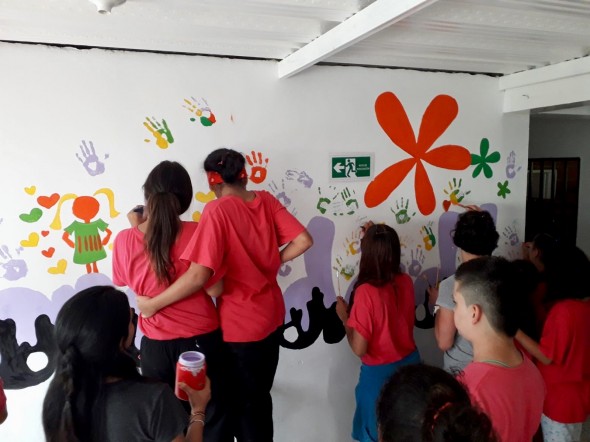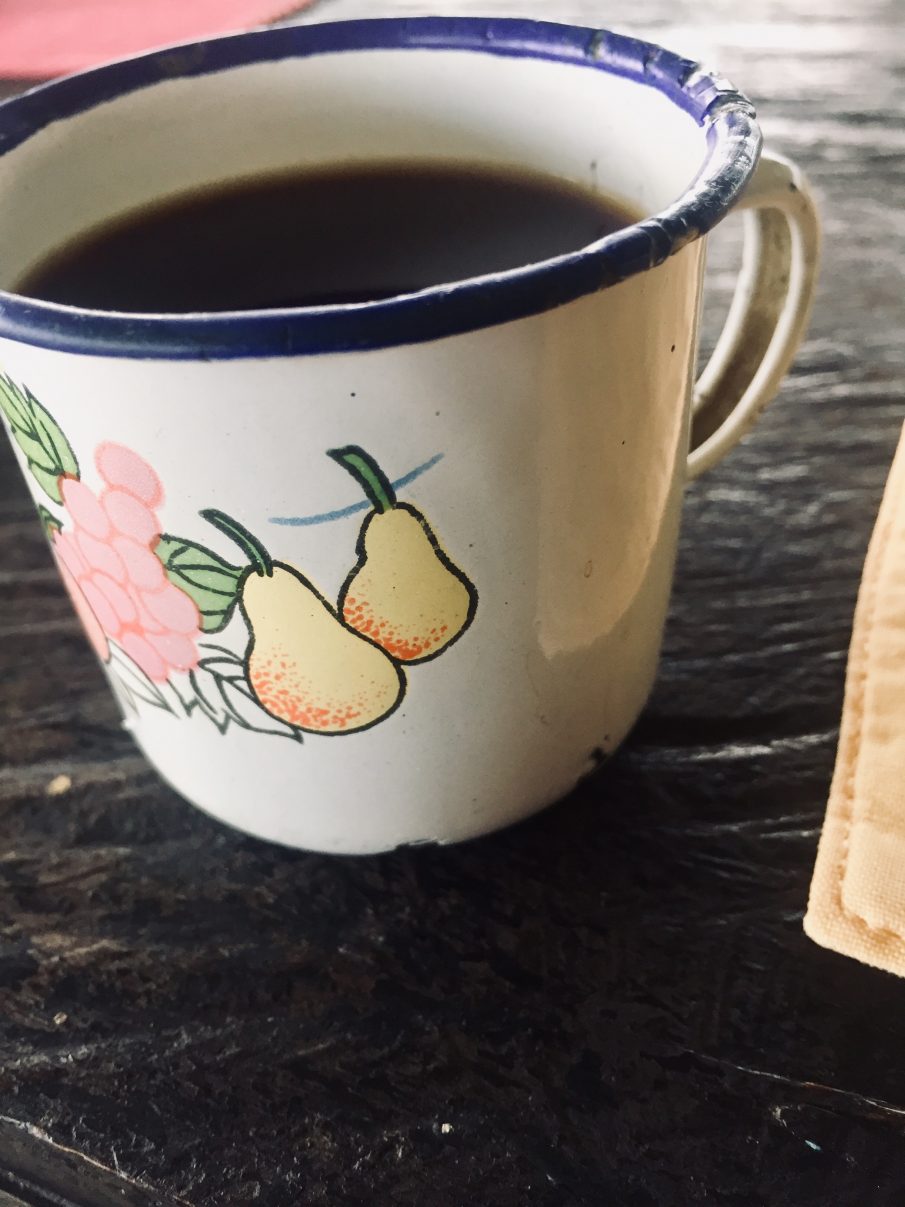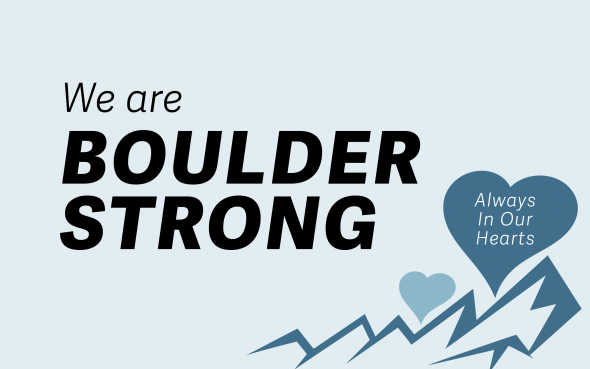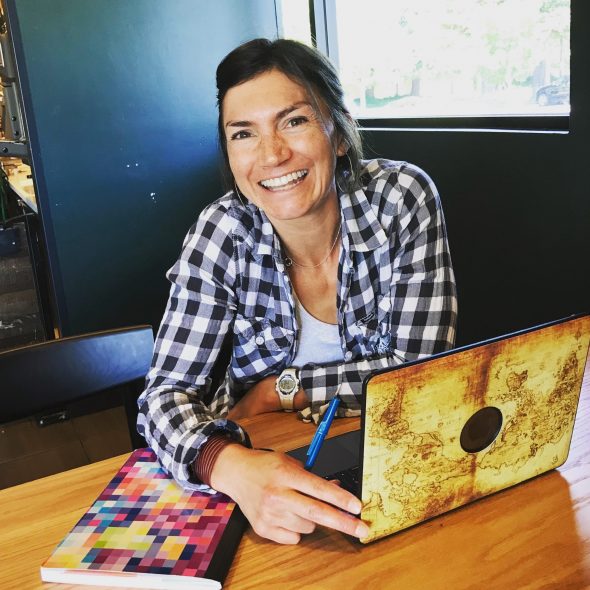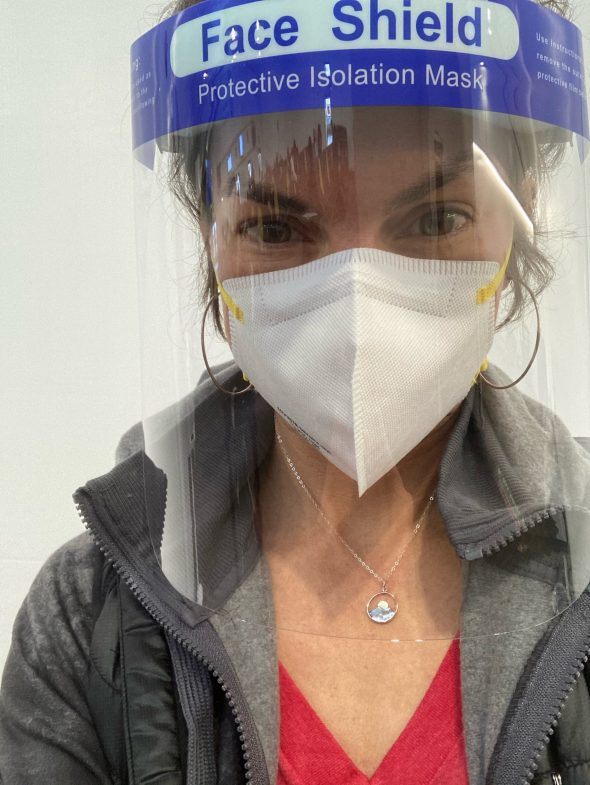I feel like I’ve developed a relationship with you, dear readers, and to maintain the transparency in this relationship, I have to be honest with you. I struggled during December, and it’s not because I was lonely at Christmas (which I wasn’t). My move to a much smaller city in the coffee region of Colombia was a bit tough. Yes there were plenty of things to be thankful for every single day. I was constantly reminded of how fortunate I am when I witness so many people’s situations that are simply hard hard hard and there is no easy – maybe even possible – way out for them.
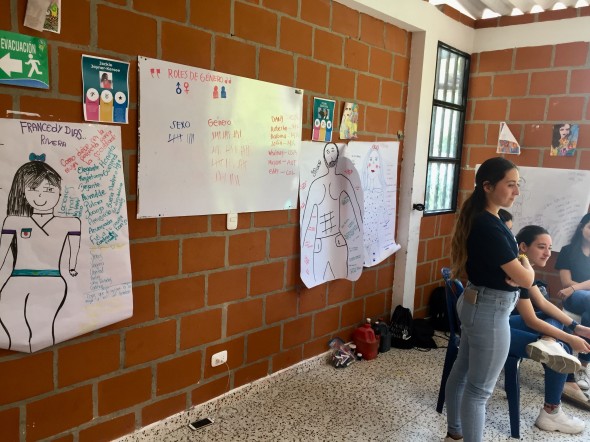
One factor I struggled with is simply the fact that I’ve come from so much and that is my frame of reference. I grew up with plenty of comforts and resources. I think my parents did an honorable job in raising me and my brothers to be hard workers and grateful for whatever we have, and to be generous with others. But we were never lacking and I’ve always had plenty of comforts in my life. I must say that this past year has probably been the most uncomfortable set of months. And really, that’s to be expected. If you move from a stable job and middle-income status in a plentiful, powerful first world country to an underdeveloped country with a fairly recent rough history and embark on a new career that pays in local currency… is it very surprising to experience quite a bit of discomfort? I’m not a super-seasoned traveler but I’m not completely naive so I knew this would bring a lot of challenges, and that’s what I was seeking. Challenge and a renewed perspective on life and purpose.

To Chinchiná (the small city I moved to on Dec 1) I brought expectations with me that for a while I didn’t even realize. Why was I feeling so upset about my shared living spaces, about the wifi that didn’t work, about the noisy neighbors and supermarket just below this house, about the crowded sidewalks and erratic drivers that could care less about pedestrians, about my perceived unfriendliness of store clerks and restaurant servers. Ok, I bet you read that list and thought – “I’d be annoyed or upset, too!” And that is probably because you are used to different situations and behaviors, and you would bring with you some expectations that things would work similarly to what you’re used to. Because that is how human behavior is. We generally assume similarities until we learn to live with (and maybe accept) differences. Granted, we may not LIKE the differences (I still don’t like many of the things I just listed, and may never), but coming to terms with them and finding healthy ways to deal with them while we are in the midst of the situation describes the space where personal growth is paramount.
Now that I have shared my big-girl thoughts, can I complain a little more? Because that feels good sometimes, too. I just need to let it out… some of it sucked! I moved out of big-noisy-dirty-many-times-uncomfortable Bogotá only to experience small-noisy-dirty-uncomfortable Chinchiná! Yes, there are many, many treasures to be found and great experiences to be had in both locations and I can make a list that is 3x as long with those, but so often the hard stuff stands out more. The trying times are the squeaky wheels, the things that demand so much of our attention and our energy.
I have never lived in such a noisy situation. Between the rooster and chickens next to my bedroom wall, to the downstairs supermarket announcement system just under the floorboards, to the constant noise of motorcycles zooming and back-firing in the street, to frequent loud concerts in the plaza, to Christmastime fireworks set off directly over my roof, to loud-talking neighbors and creaky floorboards, to an adopted street dog that barks his head off the first night he’s not in the street, to a house cat that only wants to come into my room only because I don’t want it in there rolling around on my bed, to crashing thunder and super-heavy rain magnified on the tin roof… Holy crap my earplugs have never gotten so much use, and they didn’t even work very well. I was starting to think maybe I am just overly-sensitive but now that I’ve written it all out, I don’t think I’m crazy at all- I think the list is crazy!!
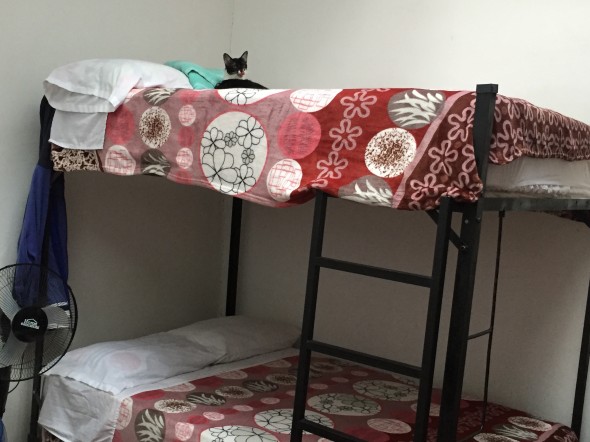
One of my biggest initial disappointments when I moved to Chinchiná was that I had been told how friendly people are in this region of Colombia, but I did not experience that. Or at least what I expected. When I meet people and have conversations, when I have broken past the initial impression, I find that there are really good and hospitable people here who care deeply about their community and are very proud of their culture and country. And I have learned just a little, but enough, to know that I just don’t know enough to make any judgements about the community and the weight that lies on most people’s shoulders here.
The coffee region is known for its beautiful landscapes, great weather, climate that supports an amazing capacity for growing things, and a long history of coffee-growing culture and premium quality coffee beans. It’s a tourist destination for these reasons and because so much of the world is enamored with coffee and therefore interested in how it’s cultivated. Coffee fincas and “eco-hotels” are common in this area, and the popularity for this travel destination is only growing. Good on these businesses! But another side of the “glamorous” coffee culture is the really hard work and tedious steps that go on behind the scenes: the reality of the farmer’s and coffee-pickers’ lives. It’s not that they’re treated unfairly, it’s that the work and the life is HARD.

The majority of coffee-pickers are men, and I learned that the younger generations are generally not interested in working in this field because, well, it’s hard and doesn’t always pay very well, it’s typically seasonal, and nowadays there are many other possibilities for work that are simply more appealing: more businesses, technology, retail and areas that are more interesting & comfortable than field labor. So I hear there is a shortage in coffee pickers now, and there will be one soon.
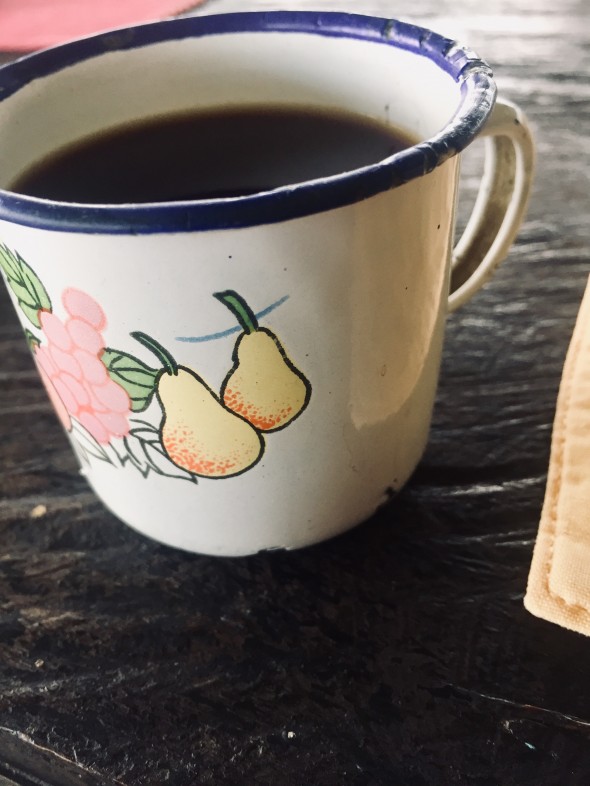
The worker’s women (wives, partners, sisters, aunts, etc) and children work in the home and take care of each other and everything else. Usually the whole family goes into town to shop and take care of things in the late afternoons and on weekends. Sure you see people interacting and having fun, smiling and laughing, but I also saw a lot of tired faces, stooped postures, unhealthy-looking bodies and teeth, and a seemingly general low concern for what is going on around them.
With a few exceptions, when I would go into a store or restaurant I was not greeted or treated with friendliness or any kind of urgency.. Customer Service is either “not a thing” here, or it’s just really different than what I’m used to in the States. This was slightly off-putting and frustrating, but I could accept that things are different or that I don’t fully understand the culture of the retail and service systems here. However, I had brought with me the expectation that everyone is “so friendly” here. What was I missing?
I came to learn more about the community and the surrounding poor neighborhoods and farm workers’ lives. I also had to look at myself – this is key to at least beginning to understand something when you don’t get it at first. Was I presenting something that made people react to me in what I perceived as non-friendly? Or did I just need to loosen up and go about my business with less expectations on the people around me? This was what I settled on, in combination with determining to keep my own friendly demeanor and see what it did over time.
One or two interactions don’t usually make any difference, but when the bakery on the corner next to where I’m living keeps seeing me every day and I smile and ask for the same coffee and pastry and I ask them how to pronounce something or I try out a new greeting on them.. after a week they give me a little smile and I know they think I’m a bit strange or maybe just amusing, but now I get a smile. Maybe next week I’ll get a little small talk. When I turn it into a game it’s even easier to have more patience- with them and with myself. And sure, some people will not respond to this how I’d like, and I have to let that go. The general way of doing the grocery store clerk job is different here than in the US: “customer service” is totally different, and I have to accept that. Before I decided that was the case, I spent about two full days feeling really annoyed and bitter and not smiling at people (which is unusual for me); for those days I had decided I would be like them: ” fine, you don’t smile, you cut in line, you take forever for no reason while checking out; fine, I will too”. But that is simply a bad attitude. And it gives a bad impression to the community: that foreigners are unfriendly/difficult. I definitely never want to contribute to something like that.
There is also a difference in cultures when it comes to measuring success or valuing capitalism. Growing up in the US, it’s hard not to think that everyone in the world wouldn’t want the chance to make more money, grow their business, or move up in the company for which they work. But that just is not the mindset of every other culture. Values and systems are so different around the world and they are the foundation to behaviors. I had a really frustrating experience in a restaurant in Chinchiná and I walked home shaking my head thinking “What is their problem?! Their service was all-around so terrible, and they seemed so clueless that that business is certainly going to fail”. It was a Friday night and there was hardly anyone in there (despite the really cool atmosphere and appealing menu), so it’s obviously not working for them now. In my frustration, I messaged back and forth with my good friend Vanessa in the US that night, and she is the one that pointed out to me that in lots of cultures money isn’t the most crucial thing – even if it “seems obvious” to us that it is crucial, even if they are in poverty or can’t pay their bills. They aren’t driven by making that dollar. Some other motivators are causing them to care or not care, and changing people’s deep motivators is not often influenced by money or by outsiders with ideas about how to do things “better”.
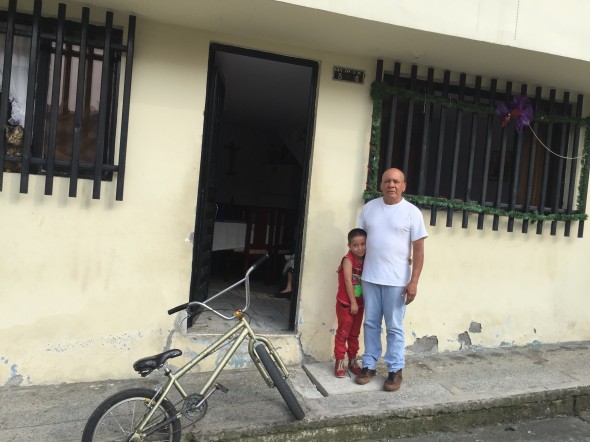
Line those things up next to someone like me who is super-driven by productivity, accomplishing, and having something to show for every second of my day. Part of this is my personality, part of it is my culture. I don’t have to change, maybe I don’t even want to, but I do want to be able to recognize where my frustrations come from and not just blame “their culture” for my poor restaurant experience and walk away from it. I’m beginning to see that there are learning points for me here that have application, such as “I want to change ___ about myself or about my practices”; and there are other learning points that have no need for action but simply recognition.
